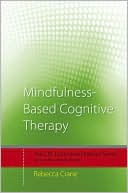Category Books
- Fiction Books & Literature
- Graphic Novels
- Horror
- Mystery & Crime
- Poetry
- Romance Books
- Science Fiction & Fantasy
- Thrillers
- Westerns
- Ages 0-2
- Ages 3-5
- Ages 6-8
- Ages 9-12
- Teens
- Children's Books
- African Americans
- Antiques & Collectibles
- Art, Architecture & Photography
- Bibles & Bible Studies
- Biography
- Business Books
- Christianity
- Computer Books & Technology Books
- Cookbooks, Food & Wine
- Crafts & Hobbies Books
- Education & Teaching
- Engineering
- Entertainment
- Foreign Languages
- Game Books
- Gay & Lesbian
- Health Books, Diet & Fitness Books
- History
- Home & Garden
- Humor Books
- Judaism & Judaica
- Law
- Medical Books
- New Age & Spirituality
- Nonfiction
- Parenting & Family
- Pets
- Philosophy
- Political Books & Current Events Books
- Psychology & Psychotherapy
- Reference
- Religion Books
- Science & Nature
- Self Improvement
- Sex & Relationships
- Social Sciences
- Sports & Adventure
- Study Guides & Test Prep
- Travel
- True Crime
- Weddings
- Women's Studies
Mindfulness-Based Cognitive Therapy: Distinctive Features »

Authors: Rebecca Crane
ISBN-13: 9780415445023, ISBN-10: 0415445027
Format: Paperback
Publisher: Taylor & Francis, Inc.
Date Published: October 2008
Edition: (Non-applicable)
Author Biography: Rebecca Crane
Rebecca Crane is an MBCT teacher and trainer and a Research Fellow within the Centre for Mindfulness Research and Practice, School of Psychology, Bangor University, UK.
Book Synopsis
Mindfulness-Based Cognitive Therapy (MBCT) is increasingly used in therapeutic practice. It encourages clients to process experience without judgement as it arises, helping them to change their relationship with challenging thoughts and feelings, and accept that, even though difficult things may happen, it is possible to work with these in new ways.
This book provides a basis for understanding the key theoretical and practical features of MBCT. Focusing on a mindfulness-based cognitive therapy programme that is offered in a group context to those who are vulnerable to depressive relapses, the text is divided into 30 distinctive features that characterise the approach.
Mindfulness-Based Cognitive Therapy: Distinctive Features provides a concise, straightforward summary for professionals and trainees in the field. Its easy-to-use format will appeal to both experienced practitioners and newcomers with an interest in MBCT.
Table of Contents
Foreword Mark Williams Williams, Mark
Pt. 1 The Distinctive Theoretical Features of MBCT 1
1 An integration of Mindfulness-Based Stress Reduction and Cognitive Behavioural Therapy 3
2 Underpinned by the cognitive theory of vulnerability to depression 9
3 Learning skills to reduce the risk of depressive relapse 15
4 The significance of automatic pilot 21
5 Modes of mind: "doing" 27
6 Doing mode in action: the effects of rumination 31
7 Doing mode in action: the effects of experiential avoidance 35
8 Reacting and responding to experience: avoidance and approach 39
9 Modes of mind: "being" 43
10 Body sensations - a door into the present 49
11 Ways of approaching and welcoming what is 53
12 Developing a new relationship with experience 59
13 Awareness as a container of our experience 65
14 Working with general and specific vulnerability 69
15 The MBCT evidence base 73
Pt. 2 The Distinctive Practical Features of MBCT 79
16 Course content and structure 81
17 Session themes 93
18 Assessment and orientation 97
19 Eating a raisin with awareness 101
20 Body scan practice 105
21 Mindful movement practice 109
22 Sitting meditation practice 115
23 The Three Minute Breathing Space 119
24 The importance of home practice 125
25 Mindfulness practice in everyday life 129
26 Pleasant and unpleasant experiences 133
27 Cognitive behavioural curriculum elements 137
28 Investigating experience 143
29 The MBCT learning environment 149
30 Teaching through embodiment 155
Further resources 165
References 169
Index 173
Subjects
 Psychology
Psychology  Clinical Psychology
Clinical PsychologyNonfiction
 Psychology
Psychology  Psychological Disorders
Psychological DisordersPsychology & Psychotherapy
 Clinical Psychology
Clinical Psychology  Psychotherapy
PsychotherapyPsychology & Psychotherapy
 Psychological Disorders
Psychological Disorders  Psychotherapy
PsychotherapyMedical Books
 Psychology & Psychotherapy
Psychology & Psychotherapy  Clinical Psychology
Clinical PsychologyMedical Books
 Psychology & Psychotherapy
Psychology & Psychotherapy  Psychological Disorders
Psychological Disorders
